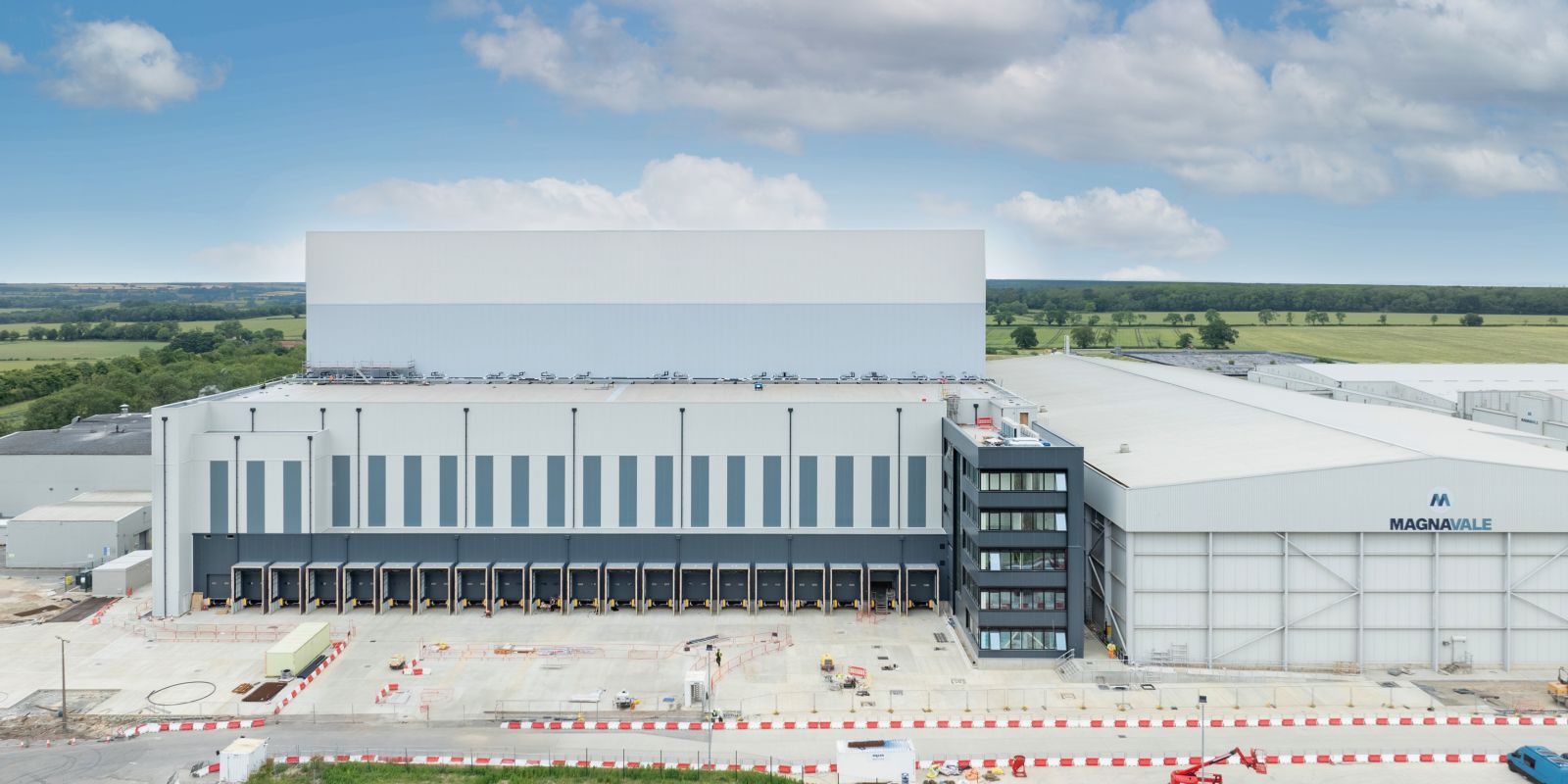UK FOOD VALLEY LOGISTICS & COOL CHAIN EDITION
The UK Food Valley is the UK’s leading hub for food sector logistics with a large proportion of the nation's food supply moving through the region. Industry trends show that the importance of logistics and cold storage continues to grow, as the food chain reconfigures and the long-term growth of food trade continues.
The cool chain is moving centre stage with growing prominence. Industry figures suggest a steady 4% year on year growth as more chilled products are consumed, and the industry uses the cool chain to manage seasonal product inventory. In this bulletin Rupert Ashby, CEO of the Lincolnshire-based British Frozen Foods Federation (BFFF), shares why he thinks the industry will continue to grow and why its success is essential to the UK food chain.
South Lincolnshire has the largest food logistics cluster in the UK with an estimated 30% of all UK food travelling through here. This results in over 1 million vehicle movements a year and 1,500 finished truckloads of food leaving south Lincolnshire every day.
This clustering of food logistics activity around Spalding and Boston in South Lincolnshire positions these areas as the second and tenth most concentrated districts for logistics in the country. The south Lincolnshire cluster includes investments by companies such as Americold, the world’s second largest cold store operator, which now runs the 29 Bowmans cold stores. This complements many other third-party food logistics providers which have UK bases in the area, including Fowler Welch, Freshlinc, M&S, Bakkavor and Turners. In this edition we explore why the cluster is important and how south Lincolnshire is aiming to support this sector through upgrades to infrastructure and providing development sites for further growth.
The A1 corridor is also seeing major investment in the cool chain, including the UK’s largest ever single cold store, with a huge 101,000 pallet capacity which Magnavale opened at Easton near Grantham in spring 2025. In this edition Jonathan Oldfield, Site Director for Pilgrims Europe and a Greater Lincolnshire Food Board member, interviews Shane Meharg about their new Easton development and the plans the business has for further growth in Lincolnshire.
The South Bank of the Humber is also a major logistics cluster, built on the UK’s largest bulk port, which supports the second largest seafood processing cluster in the northern hemisphere in Grimsby along with many other food chain businesses in sectors as diverse as poultry, pork, potatoes, soups, sauces and many other foods.
It is not surprising therefore that the South Bank also has a large food logistics sector, with Europe’s largest concentration of cold storage in Grimsby. Constellation cold stores plan to open an additional 37,000 pallet spaces later in 2025, taking their total provision in Grimsby to 220,000 pallet spaces. Lineage, the world’s largest cold store operator, also has a site in Grimsby which it continues to invest in, located next to the UK’s largest fish processor Youngs which is part of Canadian-owned Sofina Foods.
Lincolnshire has a highly developed logistics cluster, with specialisms spanning port services, cool chain storage and distribution, freight forwarding, shipping, and warehouse automation playing an unrivalled part in the food logistics sector in the UK.
This bulletin includes an article on ABP, which manages the ports of Grimsby, Immingham and Stallingborough. These ports already play a key role in food logistics, but with substantial further growth opportunities when combined with Freeport status which creates a significant area primed for investment.
Lincolnshire recognises that the logistics industry is changing, with relentless pressure to increase efficiency through more responsive services, improved labour efficiency, reduced energy costs and lower carbon emissions. The University of Lincoln is a leading expert in this area and works closely with the industry to deliver world-leading digital supply chain technologies and energy efficiency gains to drive the UK’s most efficient and sustainable food chain.
This edition of the UK Food Valley bulletin includes updates on the work of the National Centre for Food Manufacturing (NCFM) team in Grimsby who have UK leading expertise on the cool chain. They have been working with many businesses across the food sector to identify cost and energy savings to directly impact the bottom line and help food chain business meet their customers’ expectations on carbon reduction.
And the university previously partnered with Boston College through the Boston Town Deal to run the Centre for Food and Fresh Produce Logistics focused on training and innovation, built on expertise at the NCFM (National Centre for Food Manufacture) in Holbeach, Boston College’s EMAT Centre (Engineering, Manufacturing and Applied Technologies), and the DTLA (Digital, Transport and Logistics Academy), as well as the Lincolnshire Institute of Technology. In a future edition we will be focusing on skills developments and how they link to the wider south Lincolnshire food knowledge cluster centred on the South Lincolnshire FEZ (Food Enterprise Zone).
Meanwhile, the Modal Centre on the Humber also provides industry-focused training for careers in sea freight, port operations or road transport, with state-of-the-art simulators for shipping and cargo handling, and many of our FE colleges and training facilities offer specialisms in these disciplines.
The UK Food Valley has long understood how important logistics and cold storage are to a competitive food chain. We strongly welcome the breadth of new investment and activity from multiple partners, all innovating and developing new skills in logistics, so that Lincolnshire’s UK leading food sector can thrive and grow.
The UK Food Valley is keen to support anyone seeking to invest in this sector, so please do make contact and we will connect you with potential partners and sites to support your investment development.
The UK Food Valley Team



